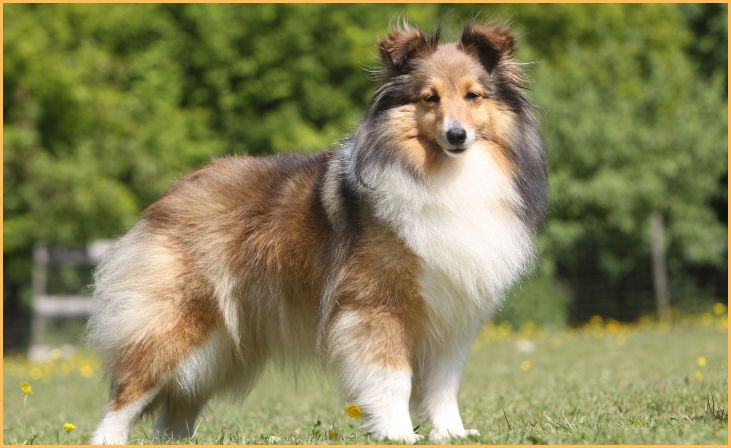Immerse yourself in the captivating realm of canines, where the artful orchestration of barks forms a melodic symphony of communication. Within the confines of this article, we embark on a journey to untangle the narratives surrounding The 8 Dog Breeds That Cant Stop Barking, delving deep into the nuances of their unique vocal expressions. Our exploration extends beyond the surface, spotlighting illuminating strategies crafted to manage and understand these spirited canine vocalizations efficiently.
The 8 Dog Breeds That Cant Stop Barking
Beagle:

Beagles are charming, scent-driven hounds with a strong instinct to follow their noses. Their keen sense of smell often triggers their barking, as they may catch scents that excite or intrigue them. Beagles are also pack animals, making them naturally social and communicative. While their barking can be a delightful expression of their excitement or curiosity, it’s essential for owners to provide proper training to manage and control this behavior. Positive reinforcement and activities that engage their keen sense of smell can redirect their energy in a more constructive way.
Also Read:- Low-Maintenance Dog Breeds
Chihuahua:

Despite their tiny stature, Chihuahuas are known for their big personalities and vocal nature. They often bark as a means of expressing themselves, whether it’s to alert their owners, communicate with other dogs, or display territorial behavior. Chihuahuas can be fiercely loyal and protective, and their barking may intensify if they feel their territory is being encroached upon. Early socialization and consistent training can help channel their protective instincts in a positive manner, making them well-behaved companions.
Dachshund:

Dachshunds, or “wiener dogs,” are intelligent and alert, bred for their hunting abilities. Their barking tendencies stem from a strong instinct to alert their owners to potential threats or interesting stimuli. Dachshunds may also bark out of boredom or frustration, emphasizing the importance of mental stimulation and regular exercise. Training that encourages positive behaviors and redirects their energy can help mitigate excessive barking.
Miniature Schnauzer:

Miniature Schnauzers are known for their loyalty and protective nature, making them excellent watchdogs. However, this can translate into frequent barking, especially in response to perceived intruders or unfamiliar sounds. Training that focuses on desensitizing them to various stimuli and rewarding quiet behavior can be effective. Providing outlets for their energy, such as regular walks and playtime, can also contribute to a more balanced and less vocal Schnauzer.
Jack Russell Terrier:

Jack Russells are high-energy and intelligent dogs that thrive on mental and physical stimulation. Their barking may stem from excitement, frustration, or a need for attention. Regular exercise and engaging activities, combined with consistent training, can help manage their exuberance and reduce excessive barking. Teaching alternative behaviors, like fetching or problem-solving games, can redirect their energy positively.
Shetland Sheepdog:

Shelties, known for their herding instincts, may bark to assert control or communicate with their human or animal charges. Their barking is often a response to perceived disruptions in their environment. Training that emphasizes positive reinforcement and encourages calm behavior can curb excessive vocalization. Providing outlets for their herding instincts, such as agility training or obedience exercises, can also contribute to a more content and less bark-prone Shetland Sheepdog.
Siberian Husky:

Huskies are renowned for their striking appearance and distinctive howling, which can be mistaken for barking. While not as vocal as other breeds, Huskies may bark to communicate their needs, alert their owners, or express excitement. Proper socialization and consistent training from an early age can help manage their communication style. Meeting their need for physical exercise and mental stimulation, such as through interactive toys or puzzle games, can contribute to a quieter and more satisfied Husky.
Basset Hound:

Basset Hounds are known for their deep, melodious baying, often used during hunting to alert hunters to their location. In a home setting, they may bark to communicate, express boredom, or signal their needs. Regular exercise and mental stimulation are crucial for managing their barking tendencies. Training that reinforces quiet behavior and discourages excessive vocalization can contribute to a harmonious relationship between Basset Hounds and their owners. Understanding and appreciating their unique vocalizations while providing appropriate outlets for their instincts can create a more enjoyable living environment for both dog and owner.
6 Effective Methods To Stop Dog Barking
Addressing excessive dog barking requires patience and consistent training. Here are six effective methods to help stop dog barking:
Identify the Cause:
Understanding why your dog is barking is crucial. Dogs may bark due to boredom, anxiety, territorial instincts, or excitement. Identifying the root cause helps tailor your training approach.
Positive Reinforcement:
Reward your dog for quiet behavior. When your dog stops barking on command or remains quiet in a particular situation, offer treats, praise, or affection. This positive reinforcement reinforces the desired behavior.
Use Commands:
Teach your dog a “quiet” or “enough” command. When your dog starts barking, use the command, and when they stop, reward them. Consistency is key; use the command every time the barking occurs.
Desensitization:
Gradually expose your dog to situations that trigger barking, starting with less intense versions and gradually increasing the intensity. This helps desensitize them over time, reducing the likelihood of excessive barking.
Provide Mental and Physical Stimulation:
A tired and mentally stimulated dog is less likely to bark out of boredom or excess energy. Regular exercise, interactive toys, and puzzle games can help keep your dog engaged and content.
Also Read:- Best Behaved Dog Breeds
Professional Training:
If your efforts don’t yield results, consider seeking professional training assistance. Professional trainers can assess the specific reasons for your dog’s barking and provide tailored strategies to address the behavior effectively.
Conclusion
As we draw this discourse to a close, embracing the inherent vocal tendencies of The 8 Dog Breeds That Cant Stop Barking unfolds as a gratifying yet multifaceted journey. It encompasses not only moments of joy derived from the distinctive communication style of these breeds but also presents a set of challenges that enrich the human-canine bond.
Central to this harmonious coexistence is a profound understanding of their singular vocal expressions. Recognizing the varied tones, pitches, and rhythms in their barks allows for a more nuanced comprehension of their feelings, needs, and desires. It transforms the language of barks into a heartfelt dialogue, fostering a deeper connection between you and your four-legged companion.
FAQs
A: Training your dog to bark less involves understanding the root cause and using positive reinforcement techniques. Consistent training and rewarding quiet behavior can be effective.
A: Yes, some breeds are known for their quieter nature. Breeds like Basenjis and Bernese Mountain Dogs tend to bark less than the more vocal breeds.







